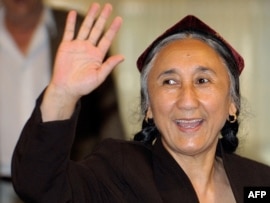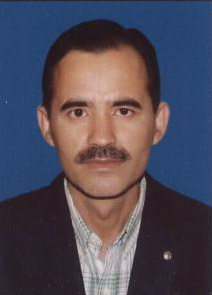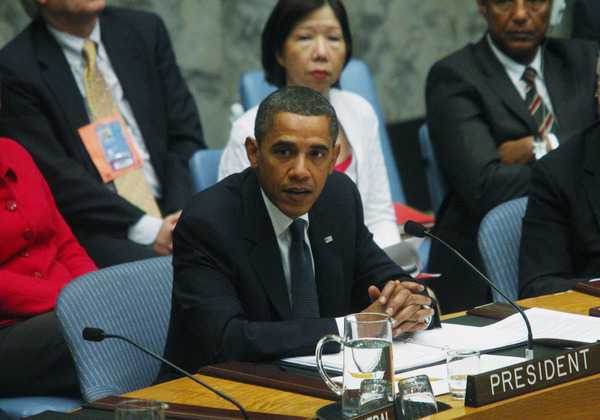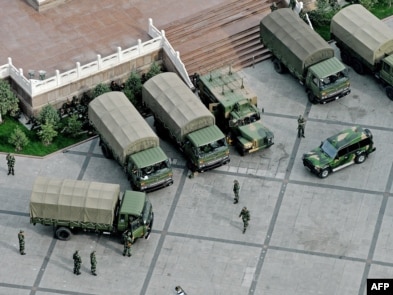2009-12-02
An exiled Uyghur returns home and finds himself in Chinese custody.
Undated photo of Kamirdin Abdurahman. Photo: RFA
HONG KONG—Authorities in China’s troubled northwestern region of Xinjiang detained a Pakistani national and member of the Muslim Uyghur ethnic minority for “harming public order” before asking him to infiltrate Uyghur groups back in Pakistan, the man said in a recent interview.
Kamirdin Abdurahman, 41, a second-generation Uyghur Pakistani, had returned to Xinjiang for the first time since the regional capital Urumqi was rocked by ethnic violence in July.
“I have traveled to my homeland many times since the 1980s, but this time I was surprised, shocked, and scared by what I encountered,” he said.
He said he was traveling with a group of 30 people, only some of whom were Uyghurs, who entered China via the Khonjrap border crossing on Oct. 18.
“We [Uyghurs] were isolated from the others, and waited two more hours outside. The weather was so cold,” Abdurahman said.
“Then we were checked by immigration police with a special attention that we had never met before.”
Detained 15 days
Later, police in the former Silk Road city of Kashgar, still a major center of Uyghur history and culture, confiscated his passport and blindfolded, handcuffed, and interrogated him before detaining him for 15 days, he said.
“Police said that I had spoken in negative ways, which had harmed public order,” Abdurahman said.
“I was held in detention for 15 days and fined 5,000 yuan (U.S. $732).”
After his detention, Abdurahman, who had come to visit family in the oasis town of Yarkand, near Kashgar, said he was asked by a Uyghur police officer to go back to Pakistan and spy on exiled Uyghur groups for the Chinese government.
“The day I completed my detention, three police officers, two Han Chinese and one Uyghur came to visit me,” he said.
Spying request
Abdurahman’s allegations come after Swedish security police charged a 61-year-old ethnic Uyghur man with spying for China in June, and expelled a Chinese diplomat from Stockholm, which is home to a large ethnic Uyghur community.
Exiled Uyghur groups say that China prefers to employ Uyghurs to spy on other Uyghurs because Han Chinese with a strong understanding of Uyghur language and culture are rare.
Abdurahman said the Uyghur police officer who approached him said he had paid the 5,000 yuan fine on his behalf.
“He asked me to be their friend and cooperate with them,” he said. “If I did, I would be allowed to travel freely throughout China, and my business and family visits would go more smoothly.”
Adburahman said he had agreed to cooperate in order to get out of his immediate situation, but that he had since refused to accept two subsequent phone calls.
“One of my duties was to join the Omer Uyghur Trust and report their activities, and the second duty was to watch the Uyghur community in Pakistan and submit a list of people who had attended or who might attend anti-Chinese activities,” he said.
Repeated bids to close
The Omer Uyghur Trust is a cultural organization based in Pakistan, set up with the aim of educating exiled Uyghur youth about their own culture.
The organizers say that Beijing has made repeated attempts to have the group shut down, mostly through the use of diplomatic pressure on Pakistan.
“The attempt was supported by government officials, but the courts rejected it, so we are continuing to walk towards our goal,” the group’s founder, Omer, said.
Pakistani-based Uyghurs said Abdurahman wasn’t the first to be harassed by police on visits to China.
“We have a list of Uyghurs who have been targets of threats and attempts at coercion into spying [for China],” said Akber, who is currently head of the Uyghur Trust.
“There are females and older persons among them,” he said.
“One guy, Imin Niyaz, was tortured badly. He didn’t feel safe after his return to Pakistan, so he moved to Afghanistan and is living there now,” he said.
“Abdurahman…is the only one who has revealed to the media what he encountered [in China],” Akber added.
Deadly clashes
Fierce clashes in the Xinjiang region in July between the local Muslim Uyghur community and China’s majority Han ethnic group left 197 people dead and more than 1,600 injured, according to an official toll.
China said Nov. 10 it had executed nine people over the unrest.
According to statements by the Xinjiang government, those executed included eight Uyghurs and one Han Chinese. A total of 21 people were convicted in October.
Uyghurs declared a short-lived East Turkestan Republic in Xinjiang in the late 1930s and 40s but have been ruled by Beijing, which many bitterly oppose, since 1949.
Beijing blames Uyghur separatists for sporadic bombings and other violence in the Xinjiang region.
But international rights groups have accused Beijing of using the U.S. “war on terror” as a pretext to crack down on nonviolent supporters of Uyghur independence.
Original reporting and translation by Shohret Hoshur for RFA’s Uyghur service. Director: Dolkun Kamberi. Written for the Web in English by Luisetta Mudie. Edited by Sarah Jackson-Han.
Copyright © 1998-2009 Radio Free Asia. All rights reserved.
https://www.rfa.org/english/news/uyghur/spy-for-china-12022009093045.html
 Tatar children dance at a celebration of the 60th anniversary of Tatar immigration to Australia in Adelaide.
Tatar children dance at a celebration of the 60th anniversary of Tatar immigration to Australia in Adelaide.



 Rebiya Kadeer, president of the World Uyghur Congress
Rebiya Kadeer, president of the World Uyghur Congress




 Chinese troops deployed in Urumqi in September.
Chinese troops deployed in Urumqi in September.